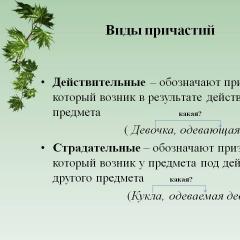How to explain the child with cases quickly and understandable?
The school today explains the children of the case, starting from the second-third class. Although before the concept of cases was introduced only in the fifth grade. And it's not by chance - the child is 10 years old to explain the case of the case much easier than the child is 8-9 years old. Therefore, in the class, most children do not understand the meaning of cases, and cannot be inclined by words on cases. And often asked to explain the concept of the case of their parents. It is necessary to approach the question creatively and explain the cases on a child understandable examples.
It would seem such simple concepts - and the case of only 6, but the children remember the case of difficulty. We offer several non-hard ways to explain the case.
What will happen if the case does not become?
Try to use all the nouns in the confirmation in the campaign. For example: "Mom eats porridge" or "Dad reads a newspaper." Specify - Why does mom eat porridge? Or "Why does the newspaper read dad?" That's impossible. Then you explain to the child why it is so important - what is the end of the word.
And the end of the word indicates a certain case. That is, in fact, the case is needed to manage the endings of words and help us to obey one word to another. Hence the name - case! Fall down in front of the main word.
The most important is the nominative case
And the most important word in the proposal is the word in the nominative case. The main thing is the nominative word. It answers the question "Who?" or "What?". Usually there is an action for this word. For example, "Mom eats." Mom is a word (noun) in the nominative case.
All six cases in detail
Genitive,
Dative,
Accusative,
Instrumental,
Prepositional.
How to explain to the child these cases? We draw the attention of the child to the name of each case.
Genitive - Birth, parent. And the question can be put in such " no who? What?"Now there is no - but" give birth and will". Genitive.
For example, "Today we will have a rehearsal of the orchestra." The word "orchestra" here is in the parental case. Because from the main word "rehearsal" we can ask for this word "What?"
Next case " Dative". From the word "give". From the main word, which is subject to the word in a dutiful case, we can ask for this word "Give it?" "Give what?"(For example, a move, a trip to life, etc.)
Example: "The child needs to explain the case." Here the word "child" is located in the duty "Who?". It is worth explaining to the child that sometimes there is no main word in the sentence. And it happens only one main word. For example, in the "fog" sentence.
Padege " Accusative"- The most problematic case for explaining to children. Children are very often confused by the accusative case with a nominative case or with a genitive padege. After all, the word in the vinegenic case answers the question " who? " or "What?". However, there is an important detail - the end of words and their hierarchy in sentences. Consider it on the examples.
« Chicken demolished egg"-" Egg "is not the main word in the sentence, although it answers the question" What? " So, the word "egg" stands in Vinual case.
"Mom eats porridge" - "what?" porridge - accusative. This word has the ending " w.", Other than the end of this word in the nominative case" but«.
« Mom put a spoonful of porridge"- And here we are dealing with your pet padege. Because we can ask a question "what." "Spoon what?" - "Kashi."
« Mom saw a girl"- the word" girl "stands in vinegenic case. Blame "Who?" Girl. But if you could ask a question "No one?" - Characteristic for a genitive case, then the end of the word "girl but"Would change to" Girl and«.
So explain to the child the meaning of the vinitive case - blame. Therefore, an auxiliary question " blame who?» « blame what?". In the parental case, the auxiliary question " No who?» « no What?«.
Accordingly, here is the word "mouse" in vinema and in parental case:
"Mice" - genitive (no who? mice)
"Mouse" - accusative (blame who? mouse).
The word "apple" in vinema and B. parental case:
"Apples" - genitive (no What? - Apple)
"Apple" - accusative (blame what?- Apple).
Instrumental case. The most beautiful case. Helps to create. And the question is the corresponding " made by whom?» « made than?". You can come up with a closer look at the title. colded by whom?» « created than?»
The word "mother" in the instrumental case "Mom". Answers the question " made by whom?"Mom.
The word "dog" in the apparent case "Dog". Can I ask you a question " made by whom?»Dog.
The word "pear" in the apparel case of "pear". Can I ask you a question " made than?»Pear.
And the latest case " Prepositional". If this case is explained to the child from the point of view of "sentences" - will become understandable. That is, "proposed" - to offer and " negotiate about whom? about what?»
We hung fun, sitting on the logs (" negotiate what?»About logs)
Masha told in the class of dad. - The word "dad" in the proposed case: " o Com?»About dad.

Usually, prepositional Easy to recognize on the pretext of him. And therefore it has the name "proposed" for example, if we say "Masha told the fairy tale of dad" - then the word Pape will be here in current caseBut if we say "Masha told a fairy tale about dad" - then there is a pretext and the word Pape stands in the proposed case. It is very important to draw the attention of the child to this circumstance, as in the duty, and in the proposed cases, the end of words is the same.
It all depends on the context. That is why we draw the attention of children that there are cases - subordinate words in the proposal, they do not exist by themselves. In this sense. However, we may well be blocked by any existing on the case, but here we will immediately ask the relevant questions.
If we just write a word in different cases, we will not understand what kind of case it costs.
For example:
mouse, mice, mice, mouse, mouse, about mouse.
Defined the case?
And so, when we ask the question:
who? - Mouse - Maldly case
who? Mice - Parent Padge
who? Mice - Conductive
who? Mouse - accusative case
by whom? Mouse - Certificate
o Com? about mouse - the proposed case
Now everything becomes clear. And in the sentence will ask a question for each word and will easily determine what the word is worth.
The order of cases of declining
How to explain to the child the order of the case in decline.
Rhine
In Vinyli
T - created
P - prepositions gave.
So in the head of the child, the order of cases will be put in order and their meaning will immediately remember.
We repeat questions for cases - to easily remember
Once again we will list the characteristic questions for the case.
Camely - who? what?
PABITIVE - No Who? No What?
Date - "Damn Who?" "Given what?"
Request - "Blame Whom?" "To blame what?"
Certificate - "Made by whom?" "Made than?"
Complained - "O Com?" "about what?" - There is a pretext before the noun.


